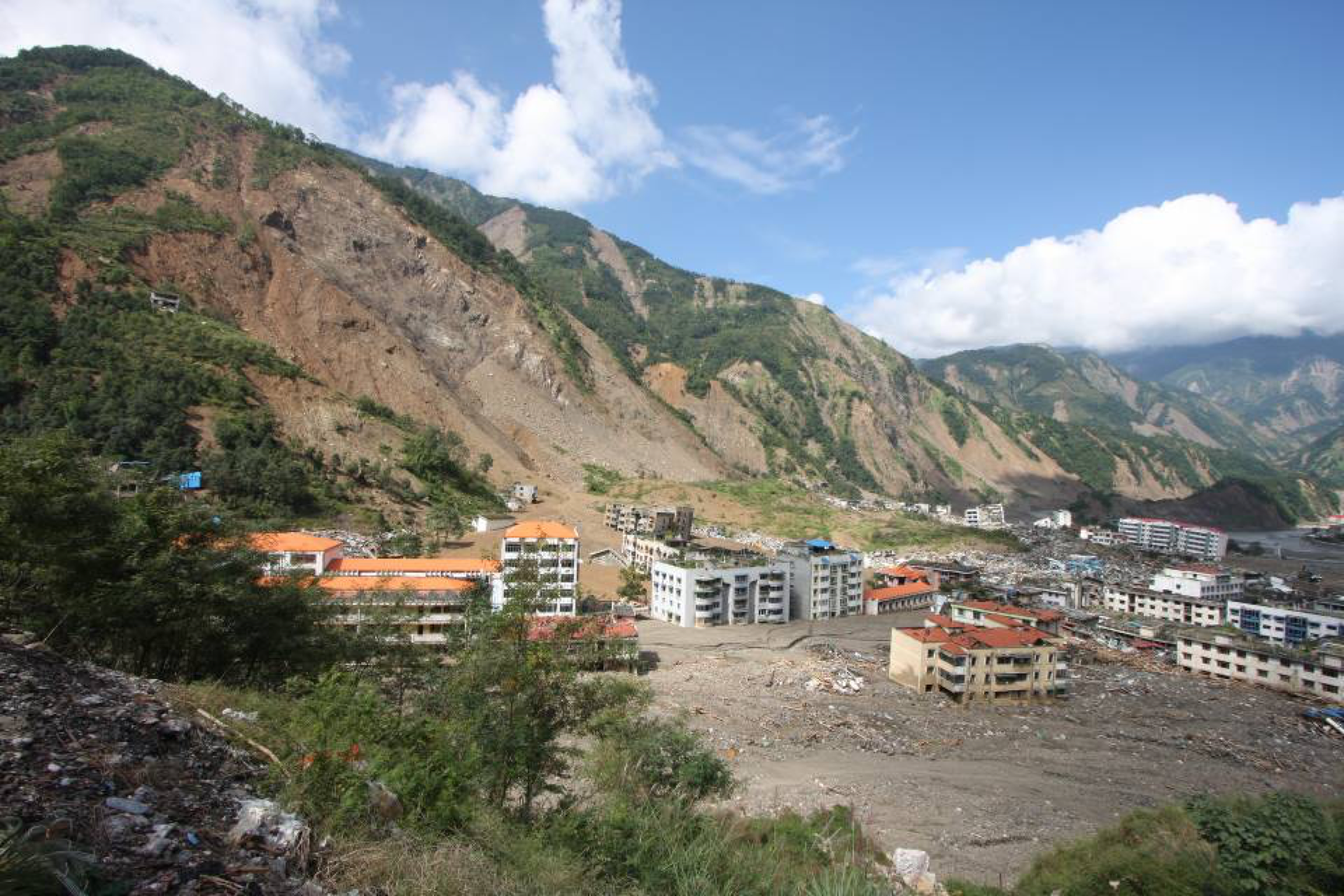Recently, Merchant Taylors' School hosted Time for Geography's Dr Rob Parker, for a talk on tectonic hazards. We were delighted to receive this excellent and informative guest blog post, reviewing the talk, by MTS student and Senior Geography Society Director, James Haywood.
On 28th September, Merchant Taylors’ the Senior Geography Society was pleased to welcome Dr Rob Parker to deliver a talk to around 140 mainly GCSE and A Level students. The talk was based on the ‘Hazards’ topic that both courses feature and which the Lower Sixth form and Divisions students are currently studying. Dr Parker is extremely accomplished in his field of research, which specialises in the impacts of climate change on landslide hazards. In 2016, he decided to create the ShakeSlide project, which aims to provide near-real-time assessment of earthquake-induced landslide hazards, for use by disaster response and risk management organisations. It was inspirational to see someone take their passion and use it to potentially save lives.
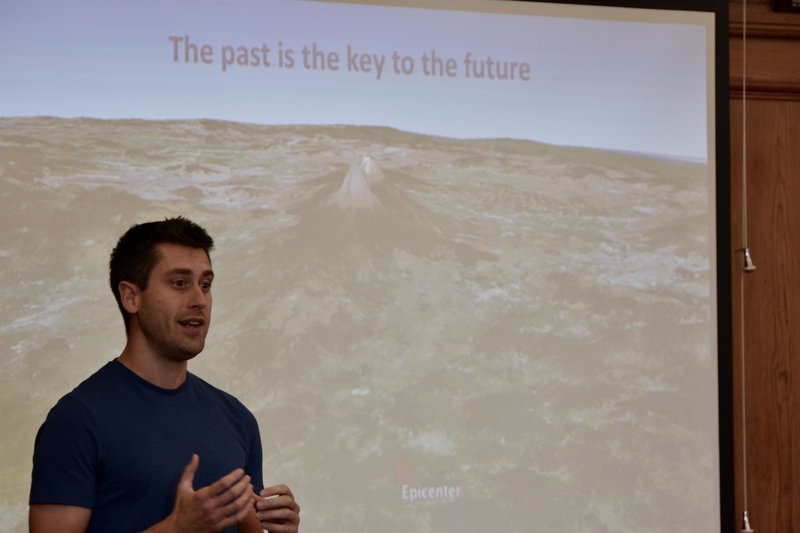
Dr
Parker covered several fascinating current issue topics such as the recent 7.1
earthquake that hit Mexico on 19 September. The earthquake was only briefly
mentioned in the media. However, Dr Parker analysed it for us in far greater
depth and also provided us with some interesting photos and videos of the
primary effects of the disaster. Some of these harrowing pictures showed the
devastation that this earthquake has had on a vulnerable country and how easily
it could occur in other less developed areas in the world.
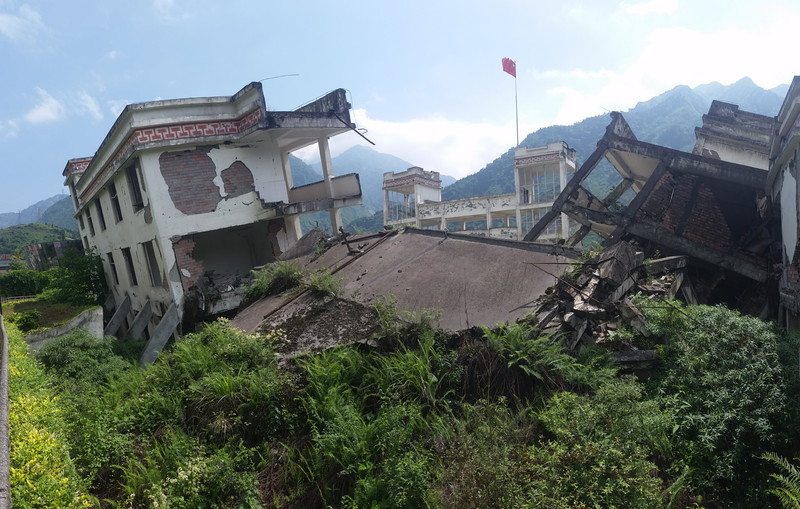
One
of my personal favourite moments was when he talked about the effects that climate
change is having on the magnitude and frequency of landslides. He explained to
us how earthquakes were leading to cracking in the lithosphere, which in turn
can cause landslides much later due to high rainfall at high altitude. He
described how a mixture of large volumes of water and rubble can cause
devastation to infrastructure and livelihoods. One example he gave us was to
show how, as a landslide gains momentum downhill, taking with it parts of
houses and cars, it can have such force that infrastructure as large as
concrete bridges can be completely torn apart by the force of this deadly
process.
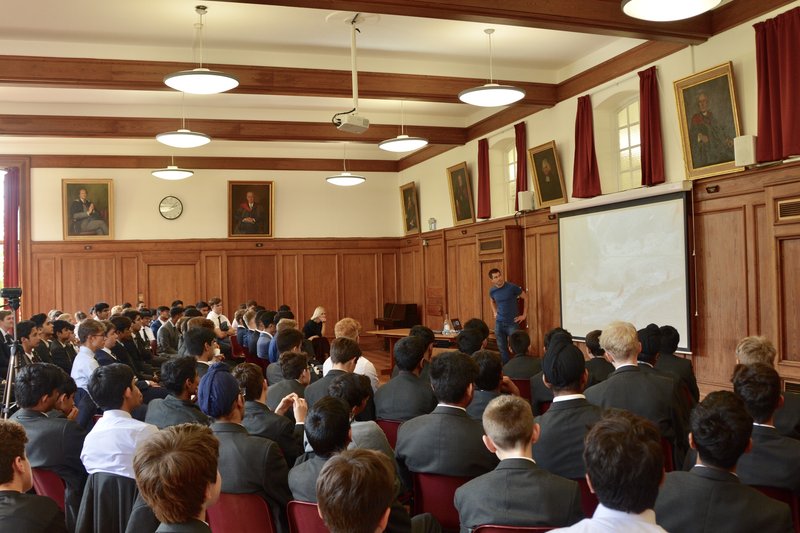
The
processes Dr Parker discussed allowed us to further develop our knowledge and gain
a deeper understanding of these powerful events. For example, Dr Parker
explained the importance of determining how landscape evolution and hill slope
failure processes influence orogeny, which is an event that leads to a large
structural deformation of the Earth's lithosphere and the temporal patterns of
landslide activity. All of this information was very interesting to hear, as it
built on the knowledge we already had from class and took it to another level.
One
of the other thought provoking aspects of the lecture was the Question and
Answer session that followed the talk. This allowed boys from all the year
groups (and we were pleased to welcome boys from Lower School) to ask any
questions they had for Dr Parker. This session revealed in particular how Dr
Parker developed a fascination for the subject from a very young age, which led
to his decision to study the subject in more detail and ultimately to enter
this field of work. Teachers often say that you should study what you love and
what you’re good at and this is exactly what Dr Parker has done and has been
extremely successful in doing so. It was clear that he was passionate about his
field, which really came across in the way he talked about the topic.
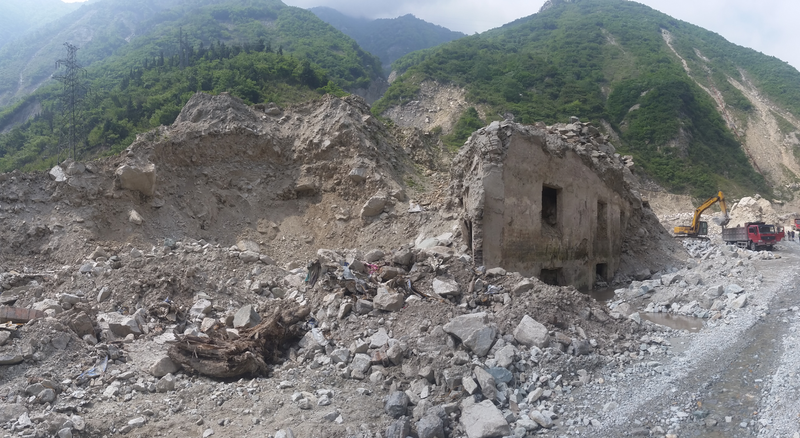
Overall,
the talk was extremely informative and every Merchant Taylors’ student and
staff member walked out of the room with a far greater understanding of the
processes behind these hazardous events. On behalf of the Senior Geography Society
and the entire school I would like to say a massive thank you to Dr Parker for
delivering such an interesting and thought provoking talk.
